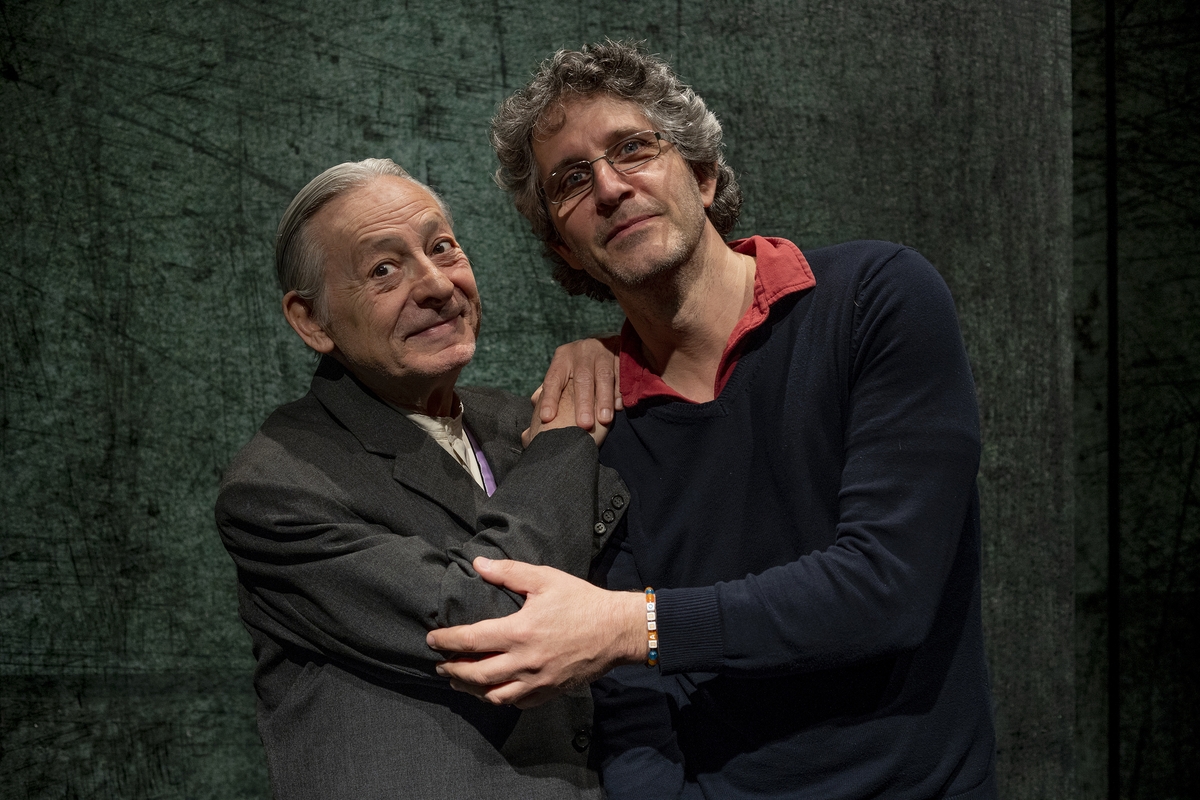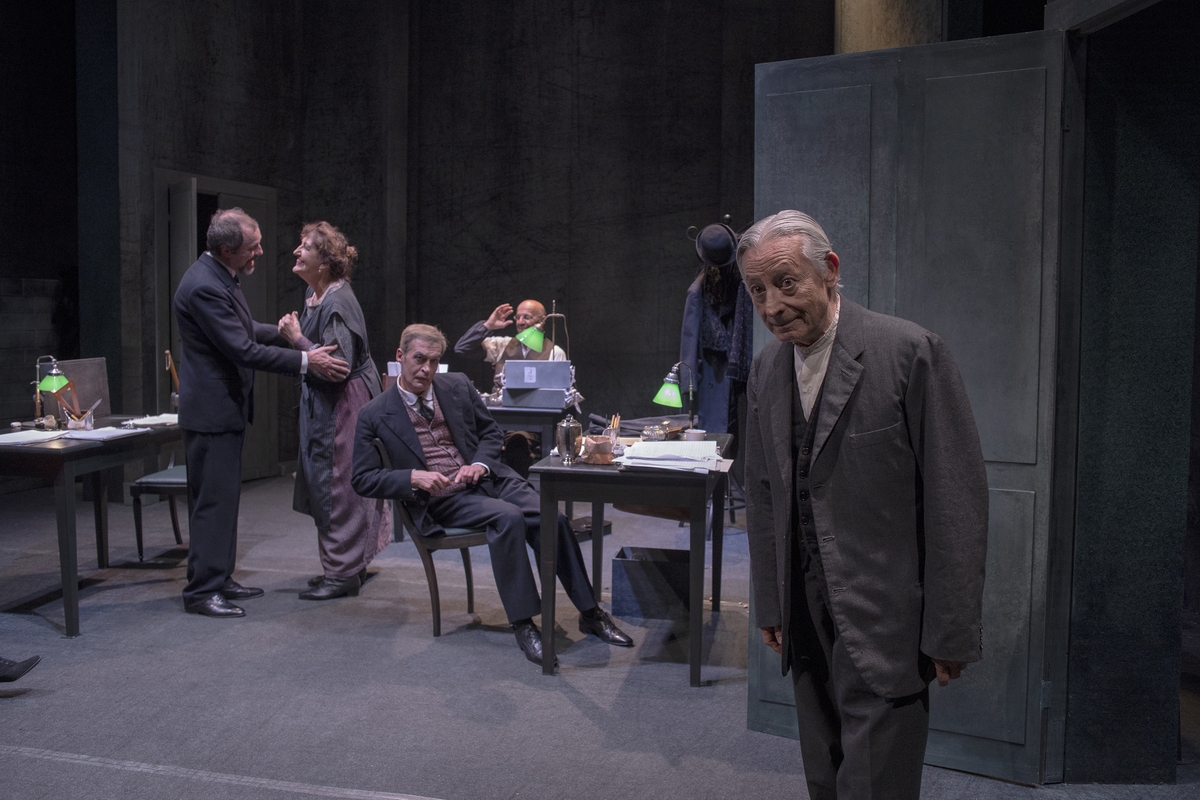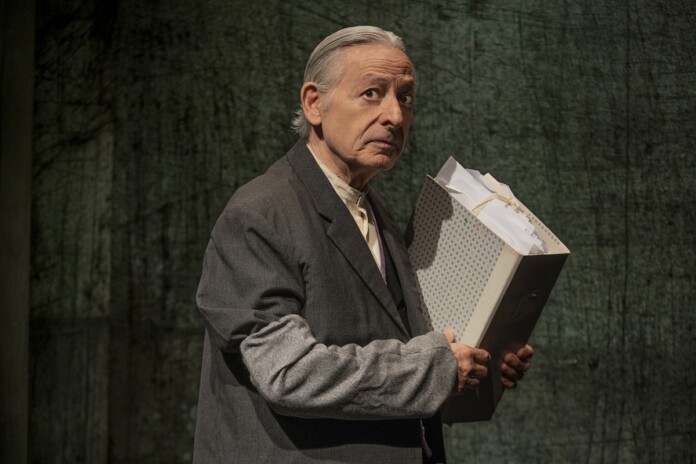The Sicilian actor is on tour with the show “Bartleby lo scribe”, a theatrical adaptation of the homonymous story by Herman Melville. We interviewed him
Up and down Italy. A tight tour of dates that alternate from the north to the south of the country, including Sicily. Everywhere the applause thunders generously, the public approves and the reviews linger above all on the protagonist, the involuntary and silent hero of a timeless revolution. The show is Bartleby the scribe in the adaptation by Francesco Niccolini and directed by Emanuele Gamba, an Arca Azzurra production. The main character is Leo Gullotta (Catania, 1946), who treads the scenes together with Giuliana Colzi, Andrea Costagli, Dimitri Frosali, Massimo Salvianti and Lucia Socci.
Our telephone conversation takes place a few days after the reruns at the Alfonso Rendano Theater in Cosenza, where the piece is part of the review The Other Theatercreated by Enzo Noce, Giuseppe Citrigno and Gianluigi Fabiano.
The scene portrays the office of a lawyer, on Wall Street or anywhere else in the world, where every day the work of two employees who hate each other, a flirtatious secretary and an intrusive cleaning lady, runs identical and repetitive. In this office a new scribe is hired, Bartleby / Gullotta, and everything changes.
“This show“- explains Gullotta -“debuted in 2019 at the Napoli Teatro Festival Italia with great success. The tour then stopped due to the pandemic and after two and a half years we finally got back to it. Theater is important. Bring community, reflection, smile. All necessary things“.

INTERVIEW WITH LEO GULLOTTA
How was the return to the scene?
Liberating first of all, because the closure penalized the whole entertainment category, music, cinema, theater, or 80,000 people, therefore 80,000 families who did not receive aid. Many have been forced to change professions, precisely because there has not been a precise advent of political support. So returning to the theater, resuming work on the set or in front of a microphone is positive, it is life.
The show is gathering acclaim in all of Italy. Why do you like it, in your opinion?
Because it’s a dramatic comedy about the conformist in us. Bartleby does not resemble any character in dramaturgy or literature. He is an alien. I am the interpreter of this wonderful character, described in a simple short story by Melville two years later Moby Dick. As Leo I love him very much. I love text and character, especially the refrain that for the whole show, in the dialogues and in the meetings, consists of the sentence: “I would prefer not to“. I feel this character on me with his way of being. The reason for this correspondence is fundamentally one: he is an anomalous, alien figure in a one-way march system and, through his preference towards no, Bartleby makes a choice, declares it and puts his face on it, and this Leo likes it very much.
“I would prefer not to“Is the original sentence, translated into”I would prefer not to“.
Niccolini’s work was respectful, it is a faithful adaptation of Melville’s story. To a spectator today, more than a hundred years after its creation, the text appears to speak with the voice of our times. An office on Wall Street, gray, almost devoid of a bright light, where “people work, work, run, run”: aren’t these our times? Yes they are. Everything is given to the viewer, who looks at Bartleby, follows him, may not understand at the beginning, but in the end he is moved. It is the viewer who must have the question within himself: have I ever made such a profound choice in my life?
Is it the ability of the theater to make people think?
This is a text that gives a slap with extreme simplicity. I call it a comedy because there is no lack of irony, but it is dramatic because it speaks to our conformist side and shakes it deeply. The viewer is inexorably seduced by the character who at first may seem distant. Instead the vortex that is created in relation to others has the rigor of his choice not to participate in the fiercely normal lives of others.

LEO GULLOTTA AND THE THEATER
I read in his biography that his encounter with the stage was accidental.
I was 14. I was born in a popular neighborhood of Catania, I lived in a railing house, the youngest of 6 children of a pastry chef. But dad and mom made us grow with great dignity. I arrived at the theater for a series of circumstances and since I was a child I found myself in a professionally very high structure like the Stabile of Catania, where, without knowing what and how, I found myself staying for ten years with stage lords such as Turi Ferro , Salvo Randone, Ave Ninchi. They called me “Gullottino”.
From there a long and articulated career began …
Because an actor cannot do the job of a land registry clerk: he must know how to look, learn, keep; to have a continuous look at life to have all those elements within oneself that help build characters. In 55 years of career I have made of characters, of any type. I’ve been in all sectors, but this is the role of the actor. The actor must know the languages of the show, of the stage, of the set. He is almost obliged, otherwise he is only a passive executor.
But what roles do you prefer?
I am an interpreter. They taught me, and I’ve always done it according to the type of character, that you have to look for that soul that isn’t written in any script.
However, it is said that making people laugh is more difficult than making them cry.
No, there is only this very bad Italian habit, which does not exist elsewhere in the world, of putting stamps: comedian, dramatic actor… An actor is an actor. Charles Laughton was neither a comedian nor a drama, just a magnificent, extraordinary actor.
In your very long career, is there anything you haven’t done and would like to do?
Since I was a child I have always been very curious and luckily I have kept this characteristic even with the advancing age. If curiosity is lacking, interest in life is lacking. I’ll give you a huge but useful example. How to judge today this dramatic and incredible event that is war? We need to know, get informed, understand what certain situations have derived from. Were there any signs in the past? If this is not done, empty sentences are said to each other, just to speak.
But don’t you think there is an excess of information today?
But luckily there is, the information. The real tragedy is that there is also an excess of fake news. It is therefore by reading, making use of curiosity, that perhaps one is able to distinguish. Choices have to be made. And here comes Bartleby back. We must always ask ourselves why. And knowing how to say “I would prefer not to“.
– Franca Ferrami

